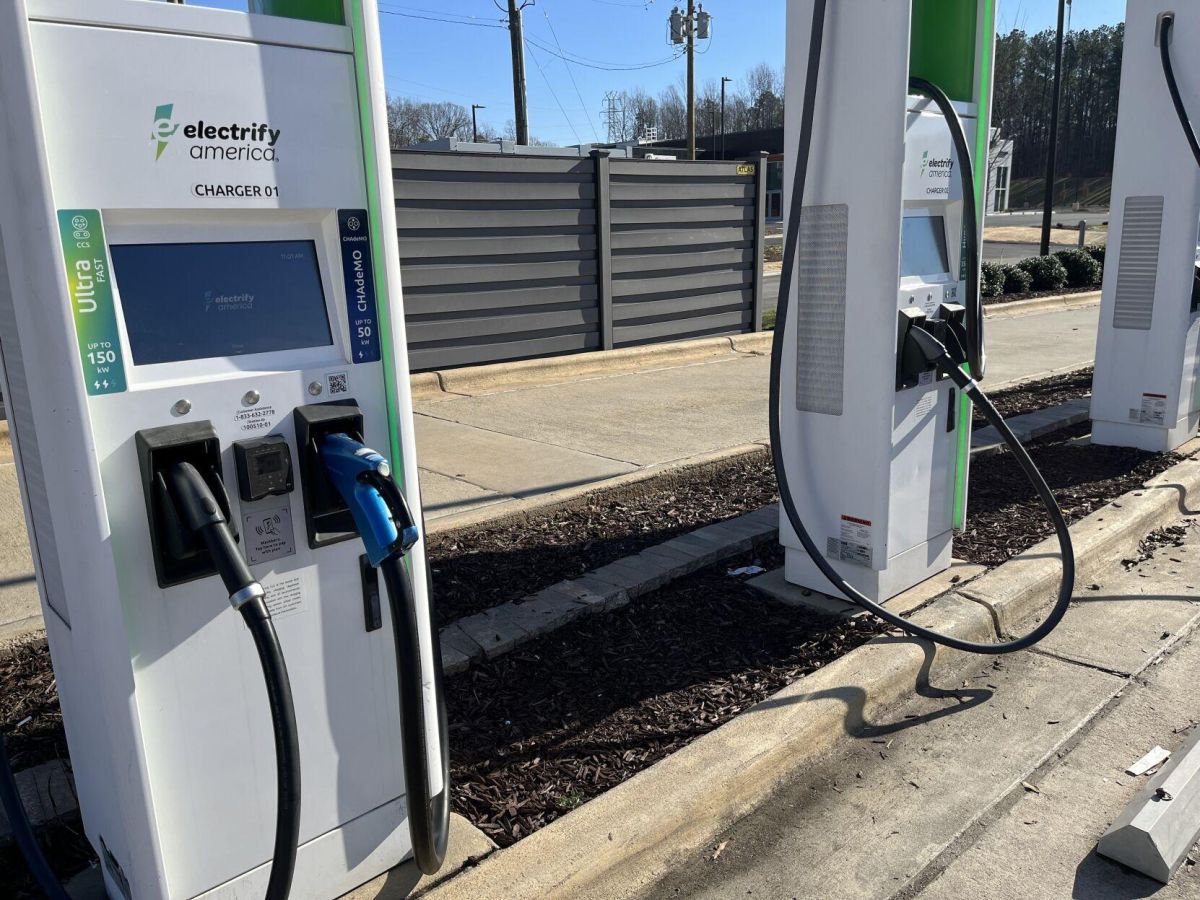North Carolina's City of Medicine has been given another charge in the electric vehicle industry from government tax dollars traced back to the $1.2 trillion Infrastructure Investment and Jobs Act of 2021.
Durham leaders are welcoming $4.8 million from the U.S. Department of Transportation to install fast-charging electric vehicle plugs in historically disadvantaged communities within one mile of Interstates 40, 85, 885 and U.S. 70. The grant is part of $623 million announced by the Biden administration Jan. 11 from the $2.5 billion Charging and Fueling Infrastructure Discretionary Grant Program.
Mayor Leonardo Williams, in a city government video posted to YouTube on Jan. 12, said, "Durham has sustainability goals and this grant is significant because it allows us to address that very specific purpose. We're going to be able to invest in our underserved communities."
Earlier the same week, the Environmental Protection Agency's Clean School Bus Grant Program made a $26.7 million award to North Carolina that will send 38 new electric school buses to Durham Public Schools.
In a separate third action, a $3 million state subsidy is helping Kempower in Durham, an electric vehicle charger manufacturer. It shipped its first from the new plant in December.
"This is a multi-faceted investment here," Williams said. "Not only will it encourage more electrical vehicle purchases, at the same time, we have a climate responsibility. Climate change is real. In Durham, we want to ensure that we're being responsible to our planet. There's also an economic advantage here."
Automakers' decisions in the back half of 2023 don't necessarily square up with his last statement.
Ford Motor Co. paused its $3.5 billion EV plant in Marshall, MI, while General Motors and Honda have canceled a program to sell EVs for around $30,000, and Ford has postponed $12 billion in EV investment, citing market conditions.
Despite $1.7 billion of promised taxpayer incentives for the plant and site readiness, Ford says it's not confident it can run the Michigan plant competitively. A final decision hasn't been made about the plant that officials said would create 2,500 jobs with an average wage of $45,136.
Rising interest rates, inflation and higher labor costs are what automakers say is forcing them to cut programs and analyze future plans. Critics of the president tie all those to what he likes to call Bidenomics.
And then there's VinFast, the automaker building a $1.4 billion plant in central North Carolina about 60 miles from Durham City Hall. Its models in 2023 came to market with horrible reviews. The state subsidy to the company is $316.1 million and start of plant operations is already pushed back from July to summer 2025.
In a news release from the U.S. Department of Transportation, included is the goal of the Biden administration is to have 500,000 publicly available chargers by 2030. The president takes credit for quadrupled sales of electric vehicles, 70% growth rate of charging ports and 4 million EVs on the road.
Democratic Gov. Roy Cooper is in lockstep with the president.
His Executive Order 246 placed a goal to register 1.25 million zero-emissions electric vehicles in the state by 2030, and to achieve a 50% vehicle sales share of the same for light-duty vehicles by that deadline. Cooper, term-limited and leaving office at the end of the year, has also committed to increasing sales of zero emissions medium-heavy duty vehicles to 30% of sales by 2030, and 100% by 2050.
Through August, in the latest numbers available, total EV registrations in the state hit roughly 75,000, with about 55,000 electric and just under 20,000 plug-in hybrid vehicles, according to state Department of Transportation data.
That means over the remaining 88 months, the state would need to register at least 14,204 zero-emissions EVs per month to reach Cooper's goal by the end of 2030. The total for all of the first seven months of 2023 was 18,000. The total added for all of 2022 was 16,940, according to the data.
In June, the State Transportation Improvement Program laid out how the Department of Transportation expects to spend $35 billion over the next decade. Electric vehicle infrastructure had a projected budget of $271 million.














